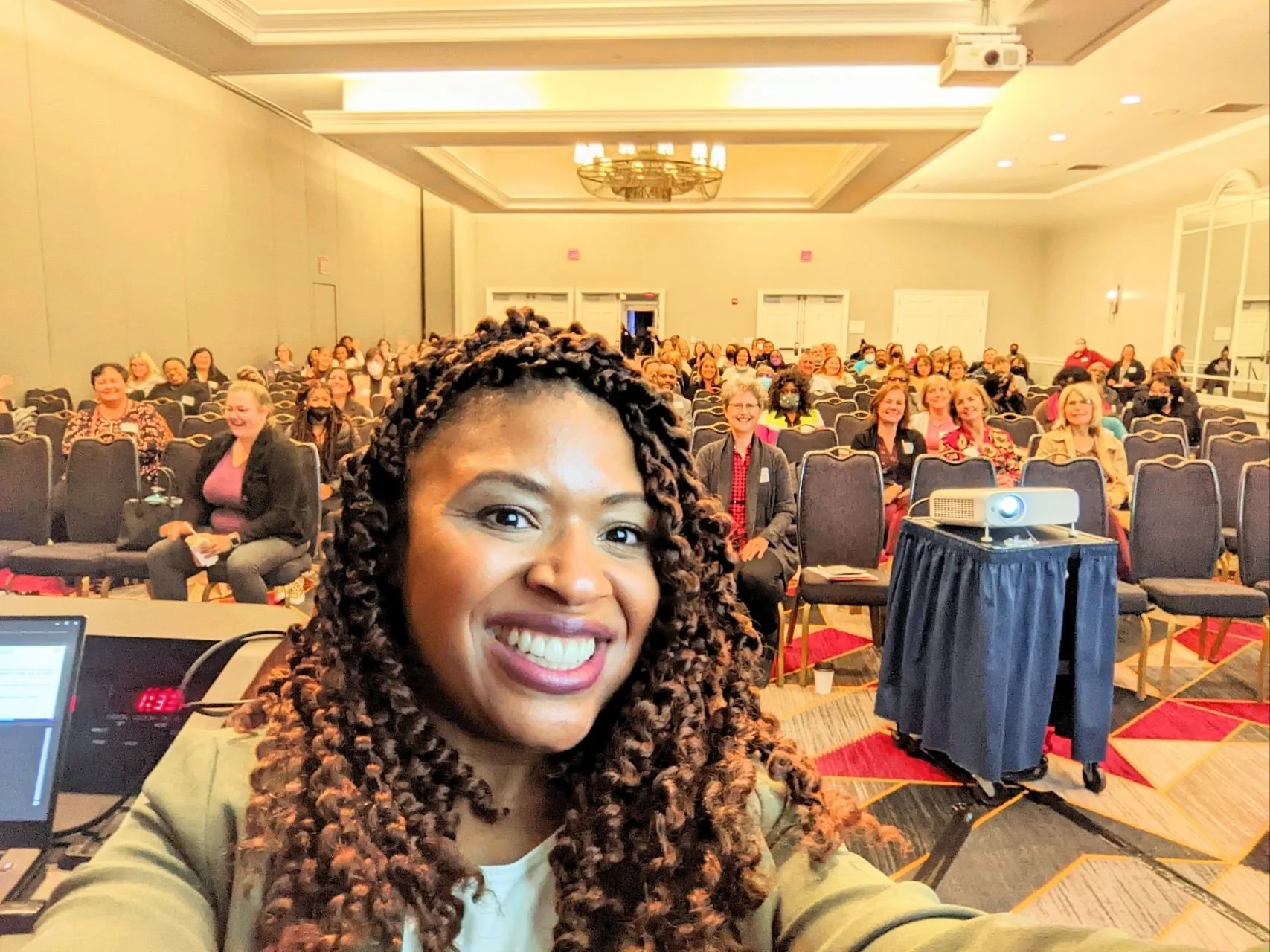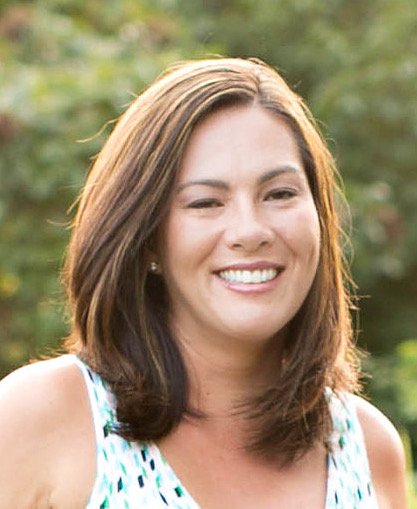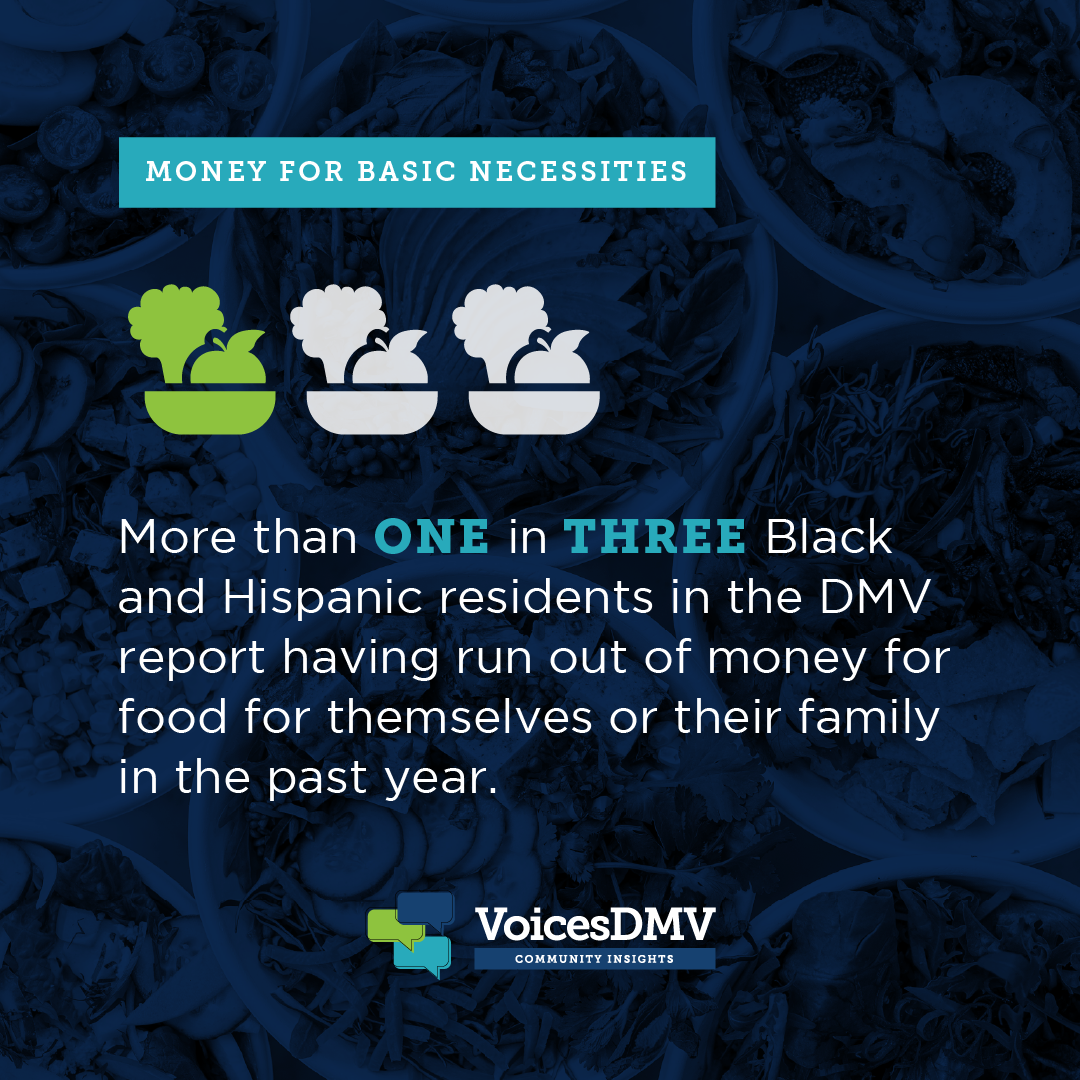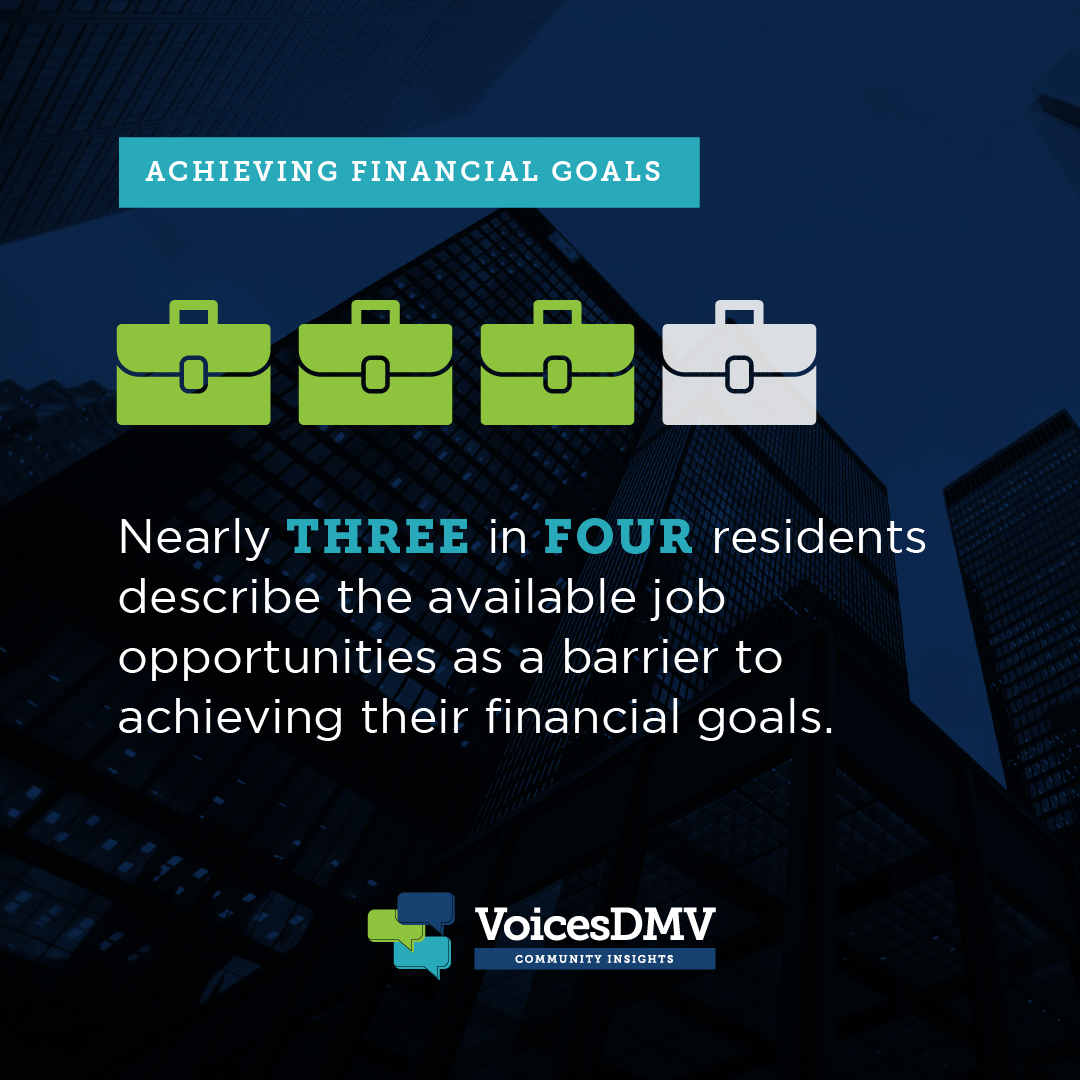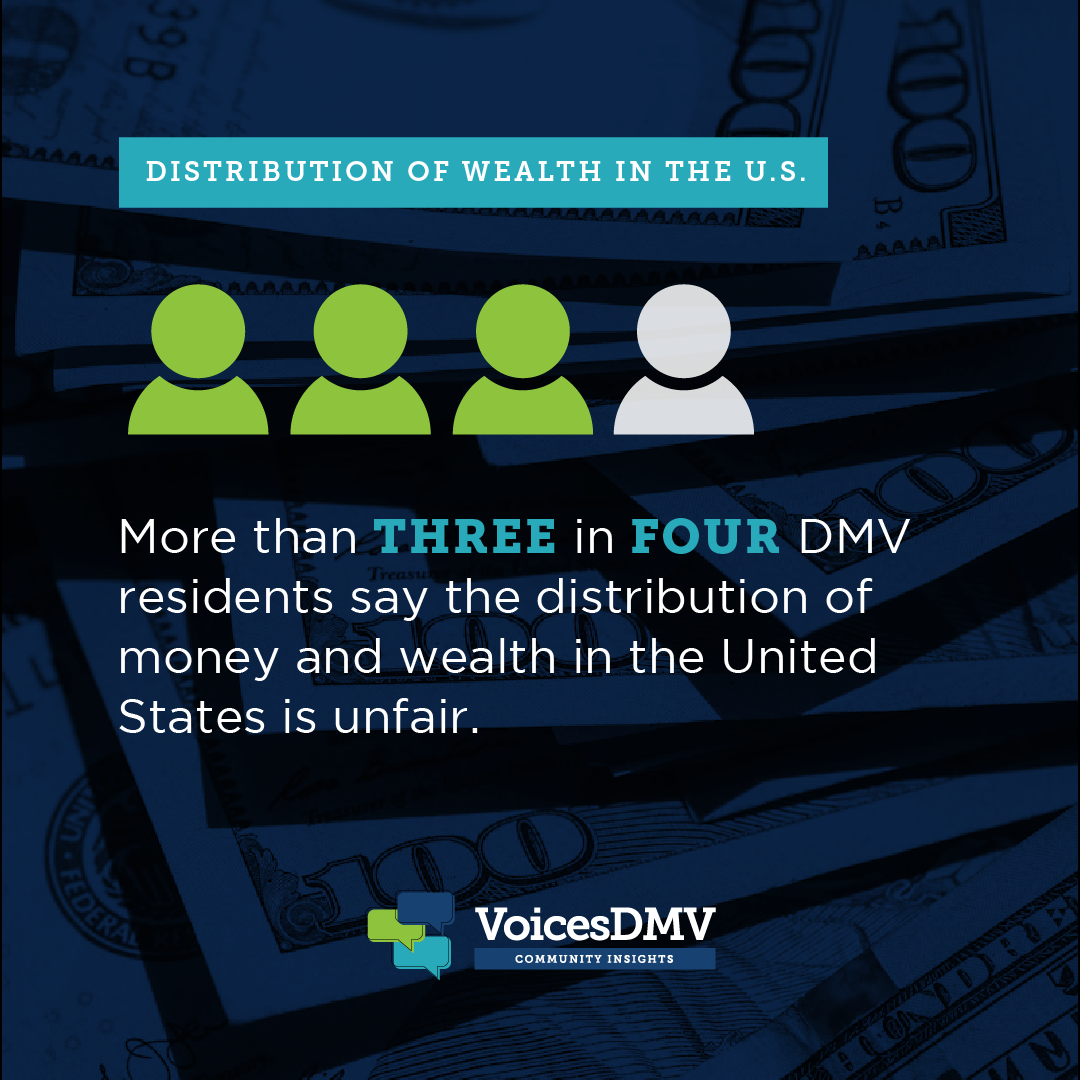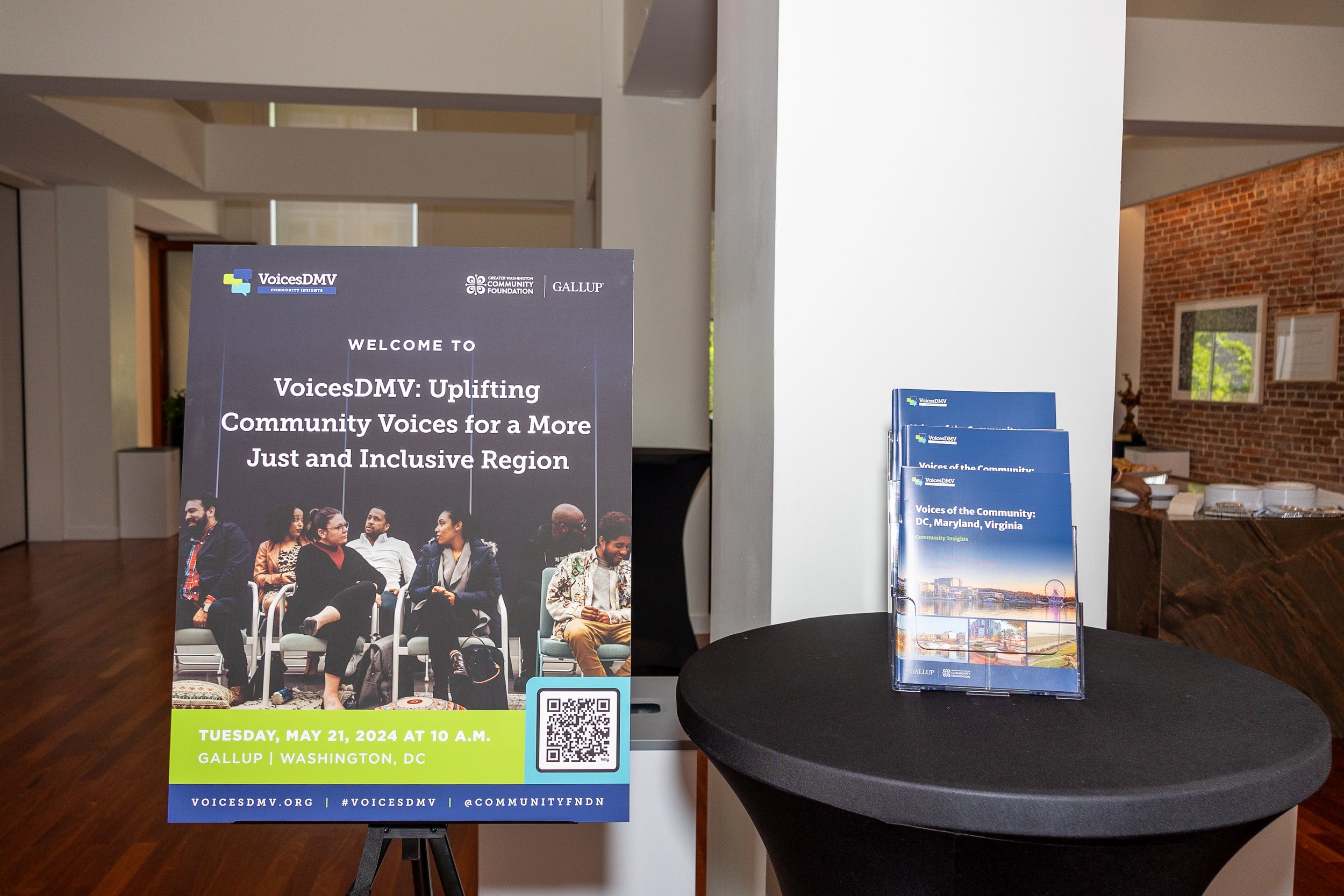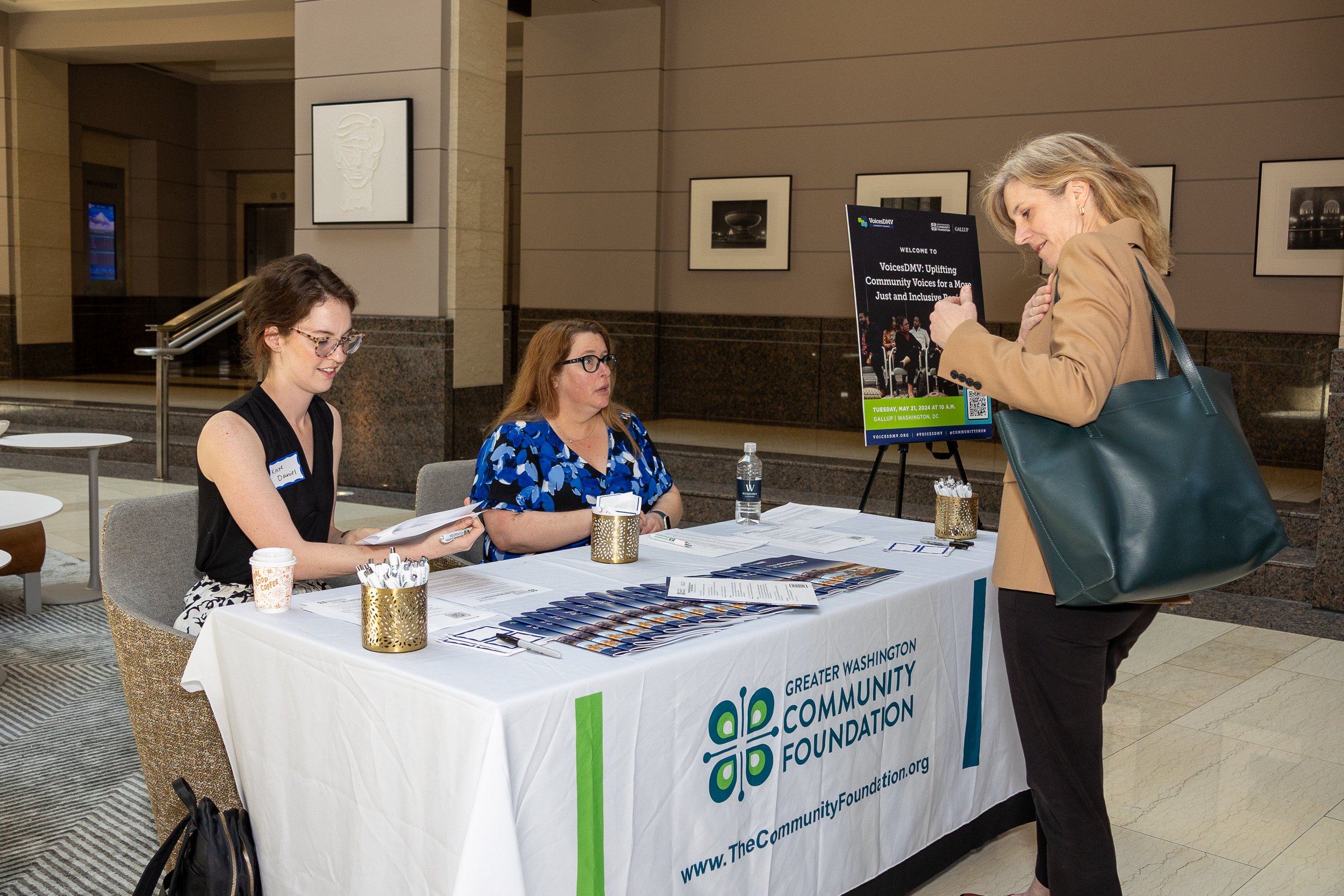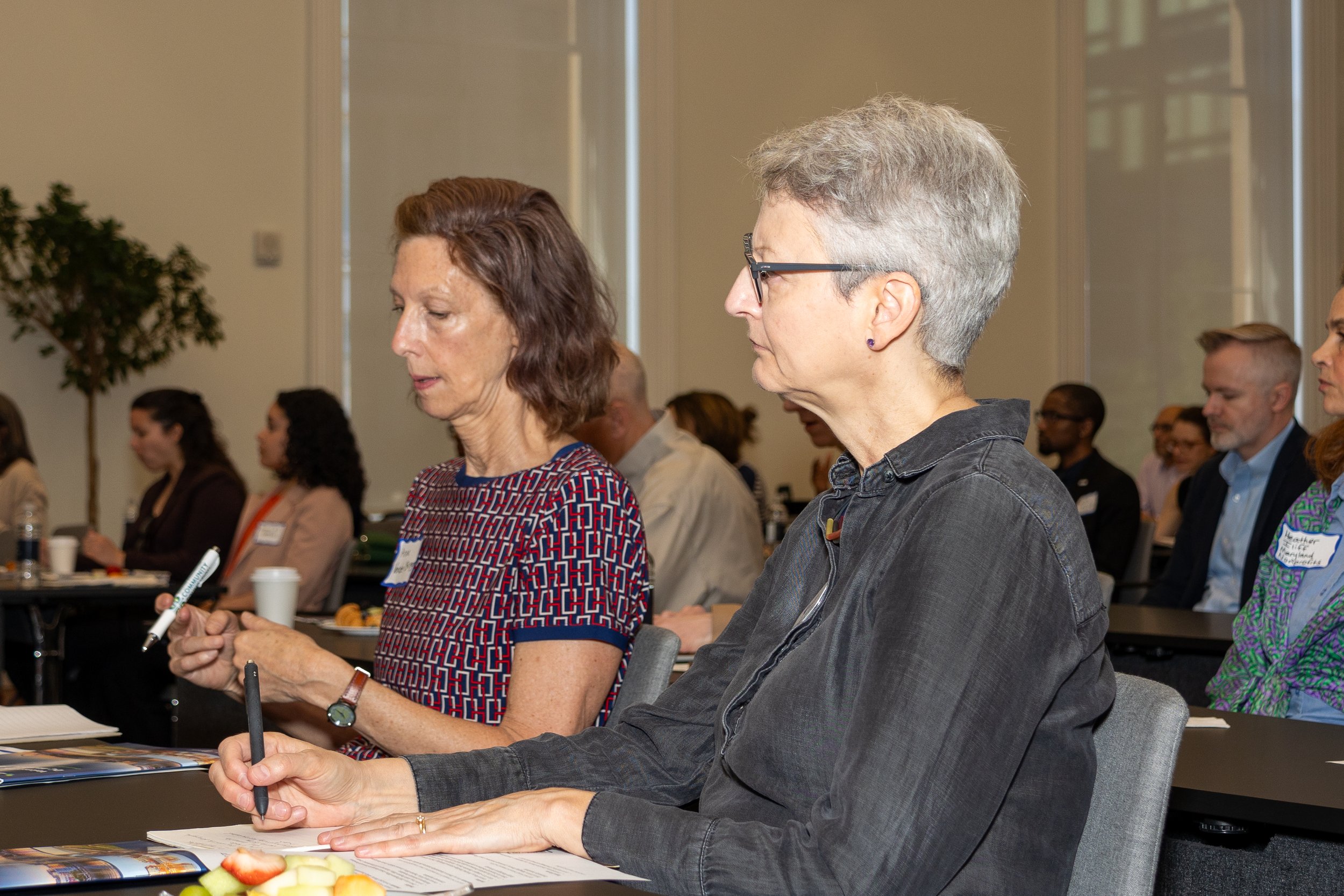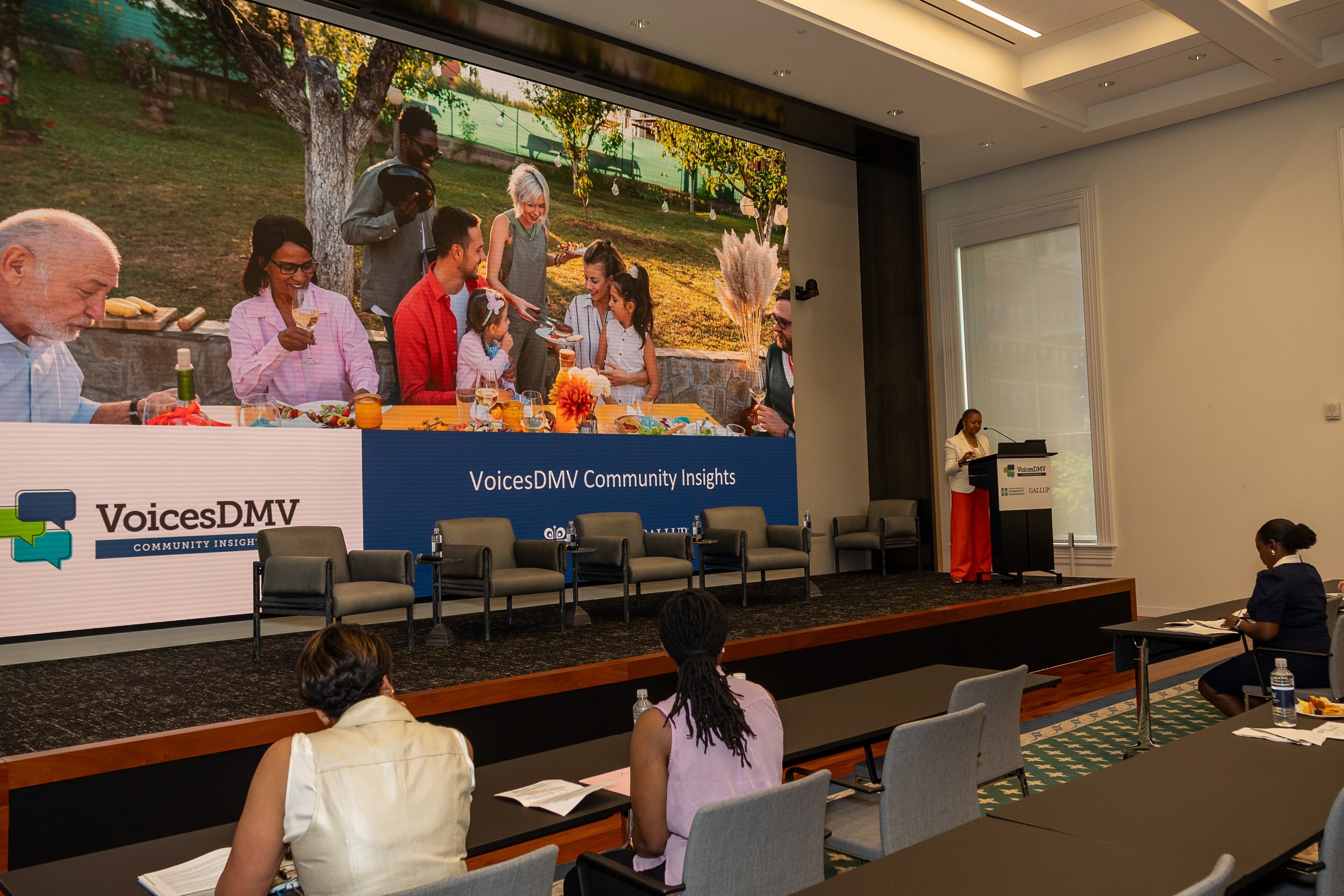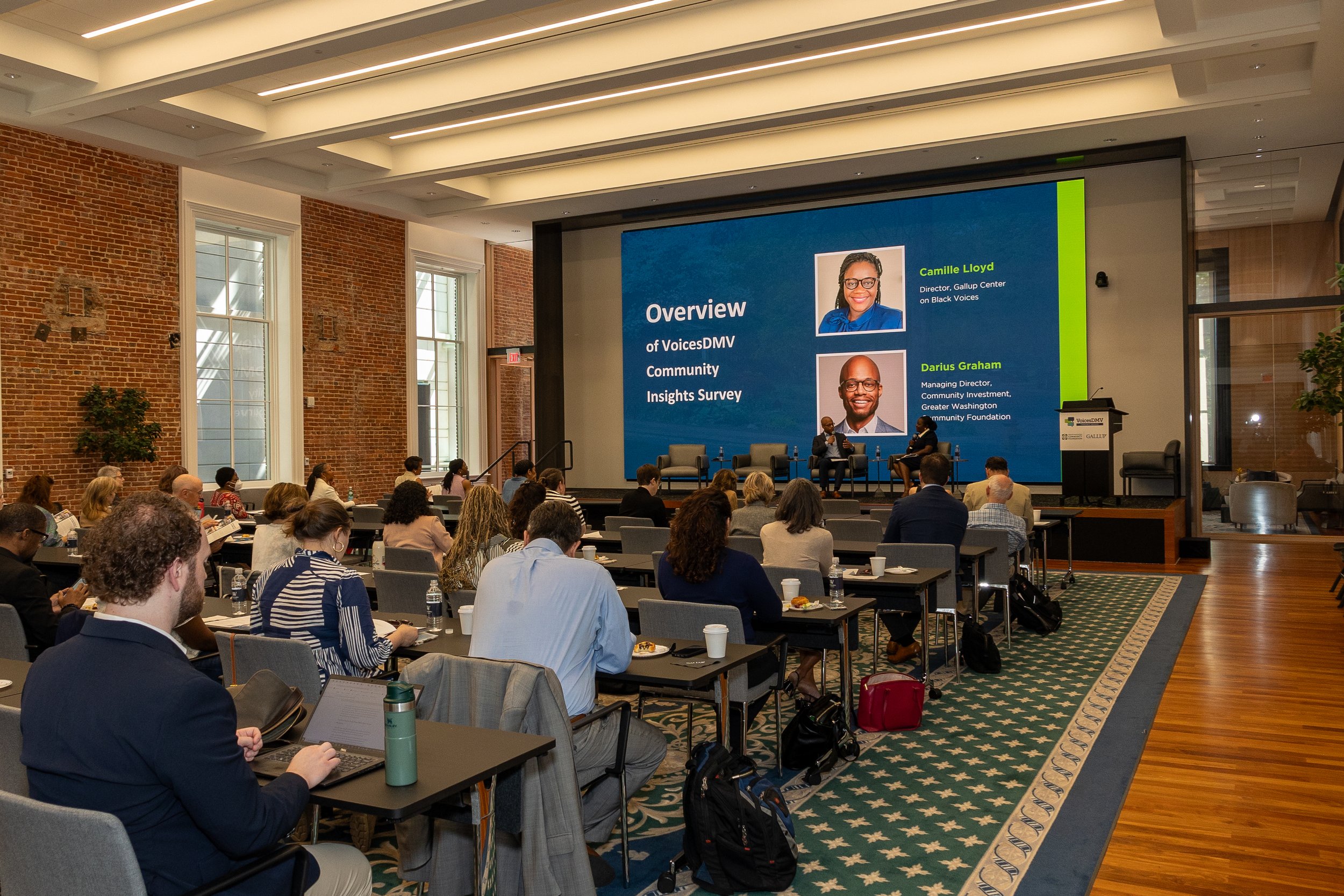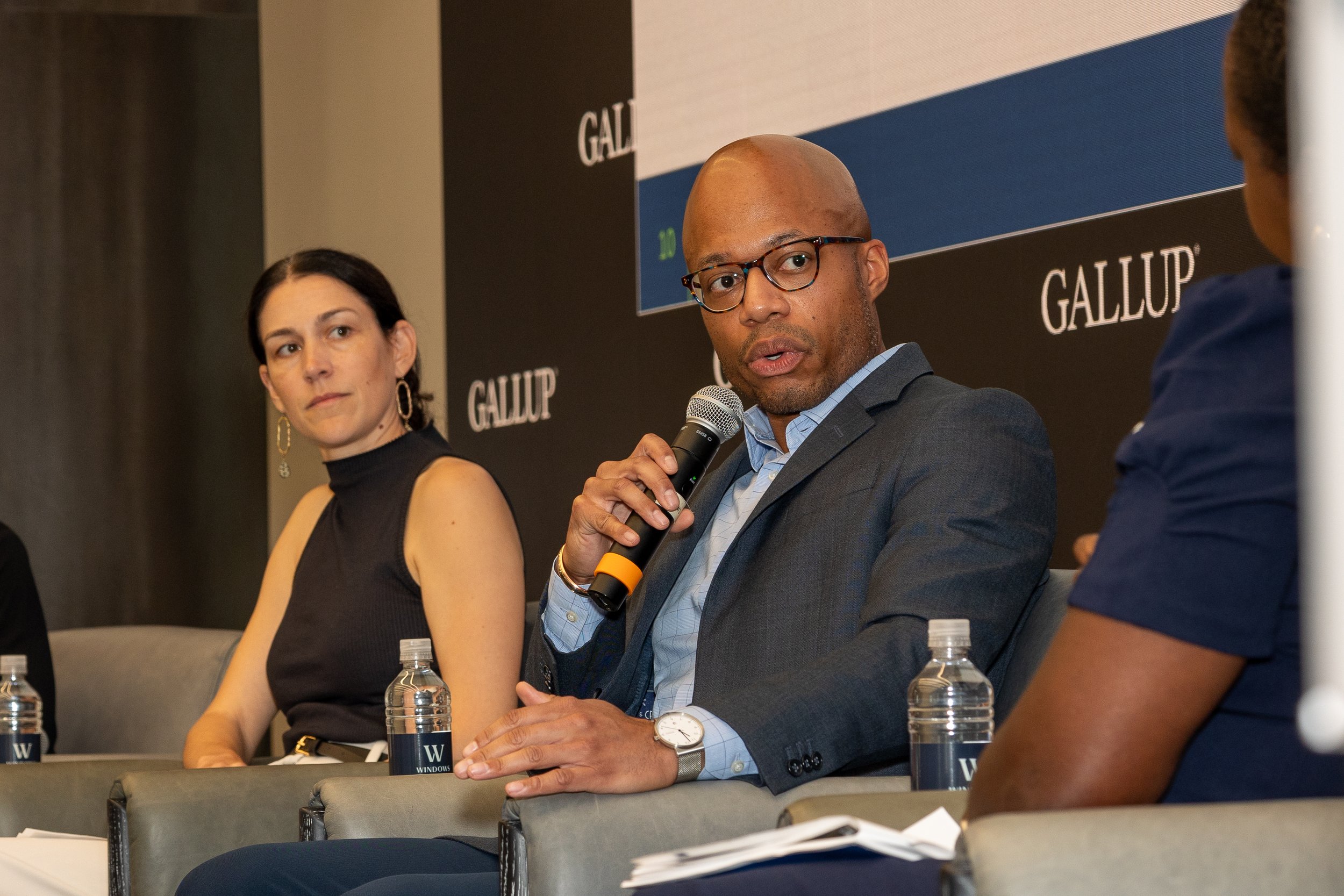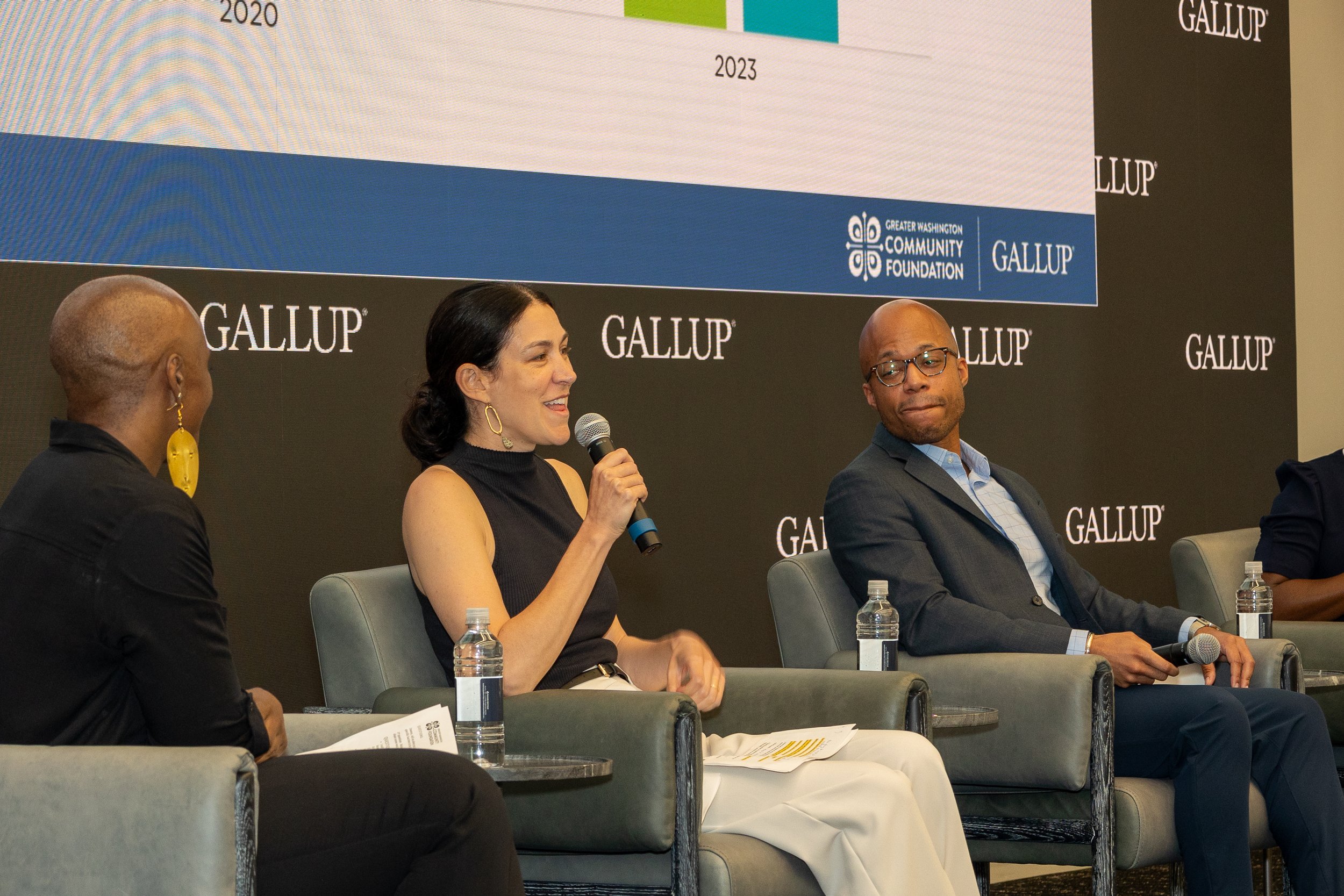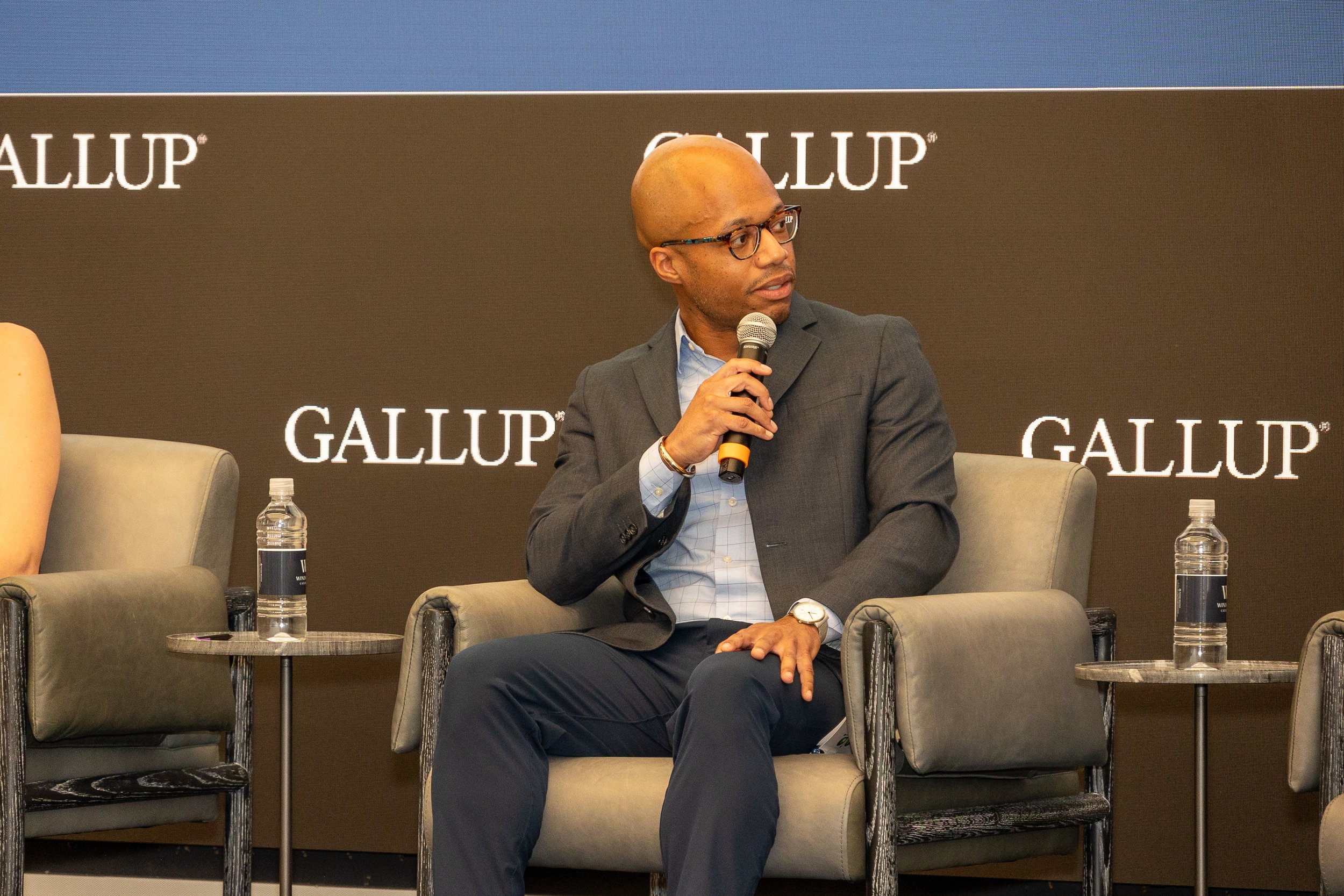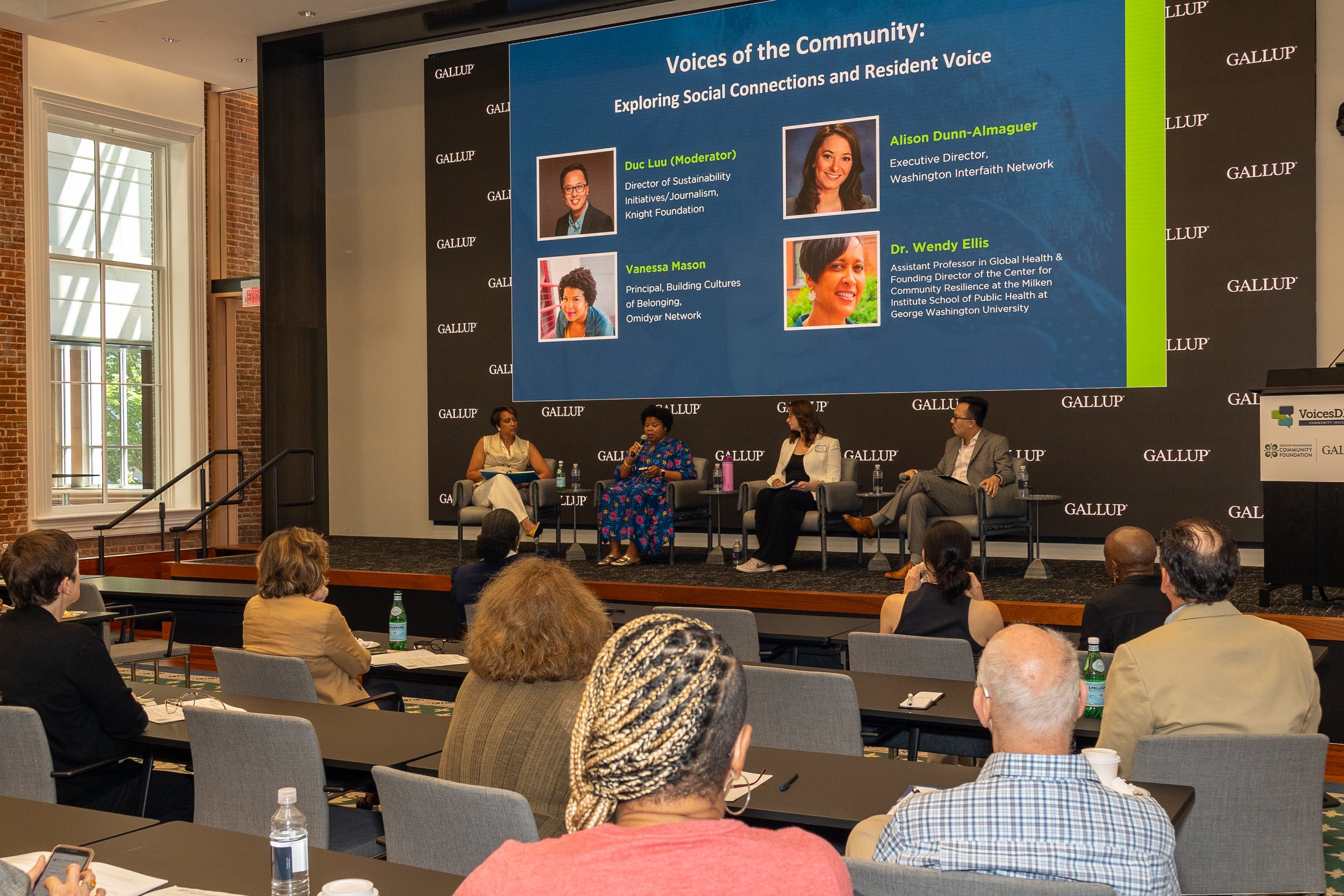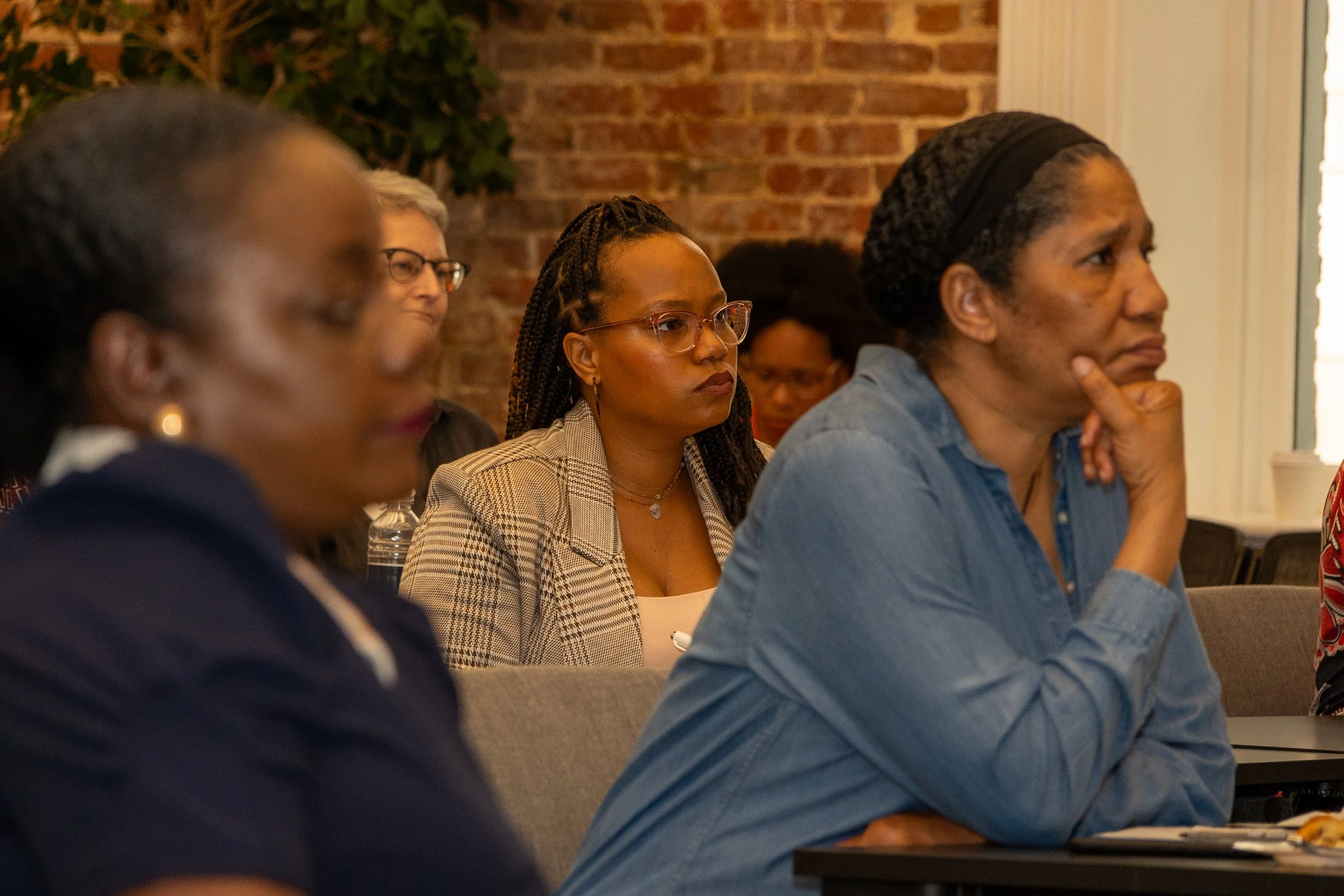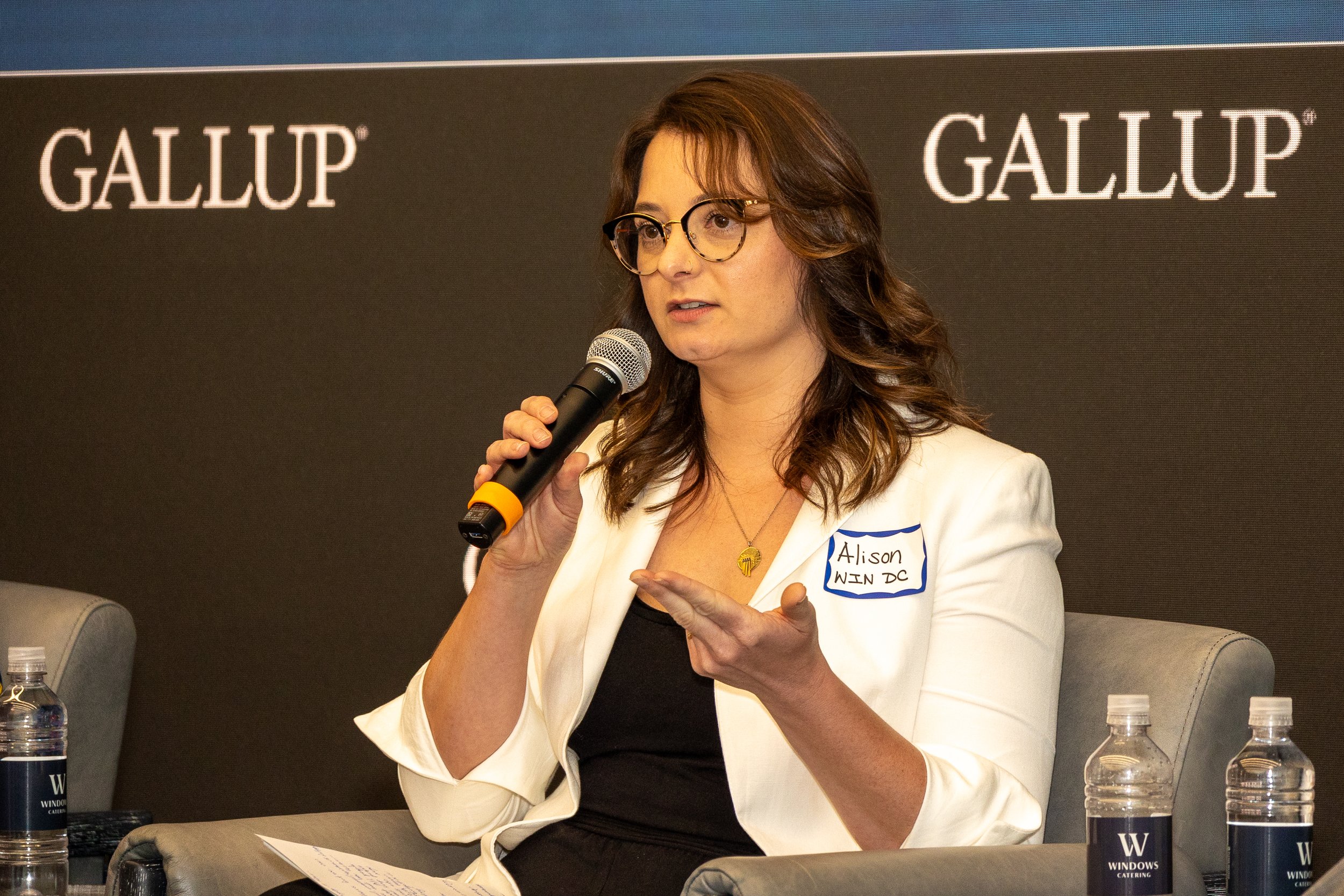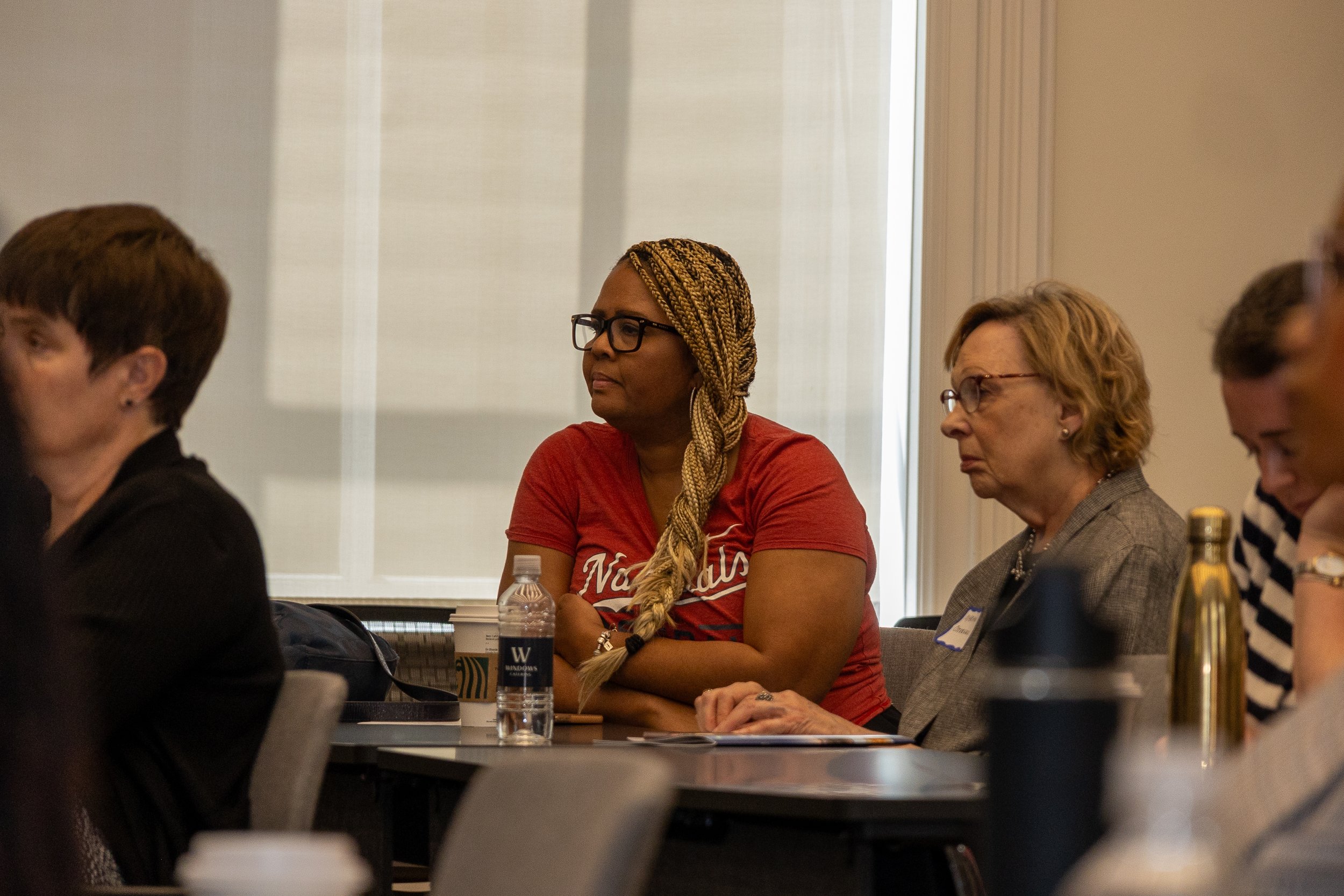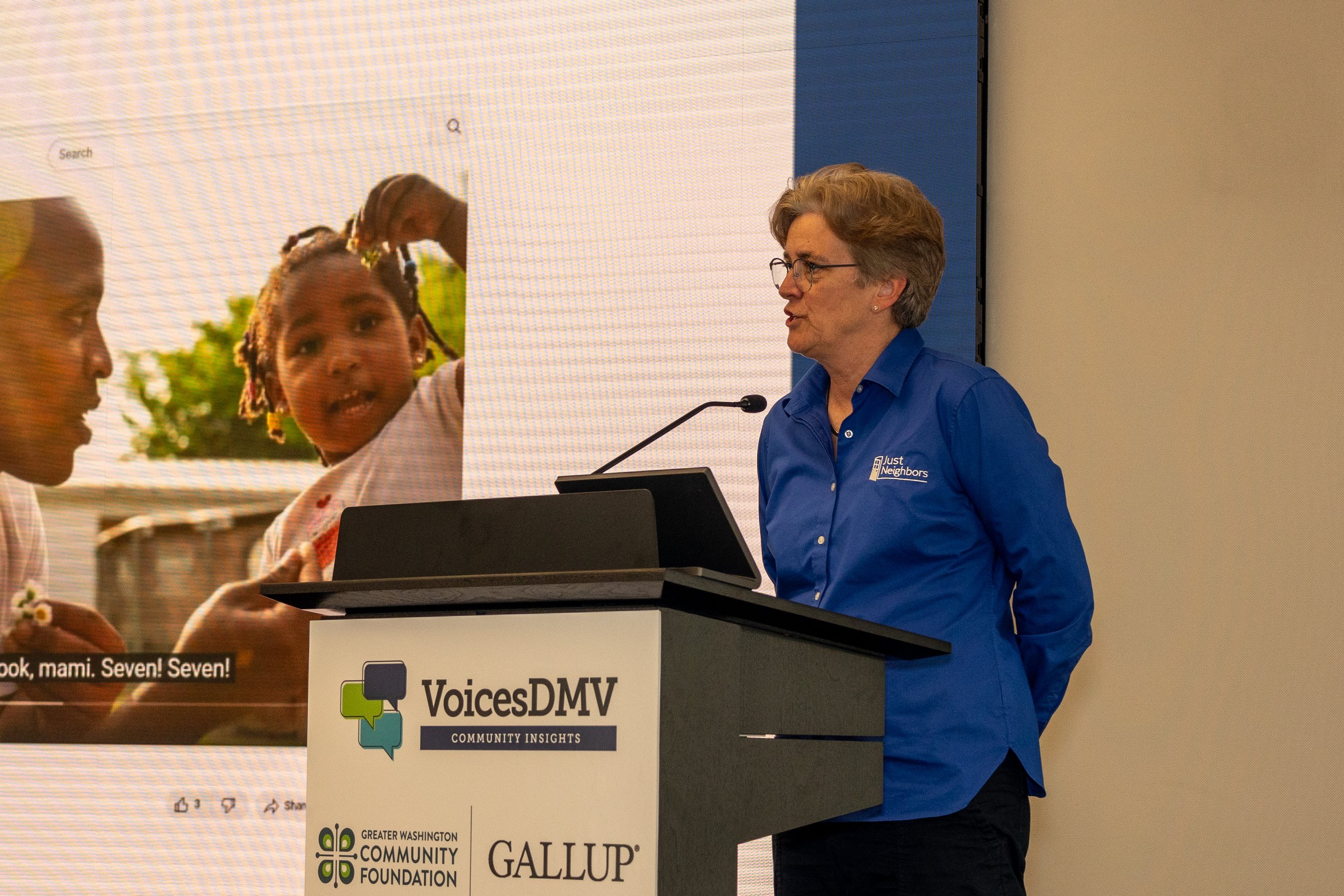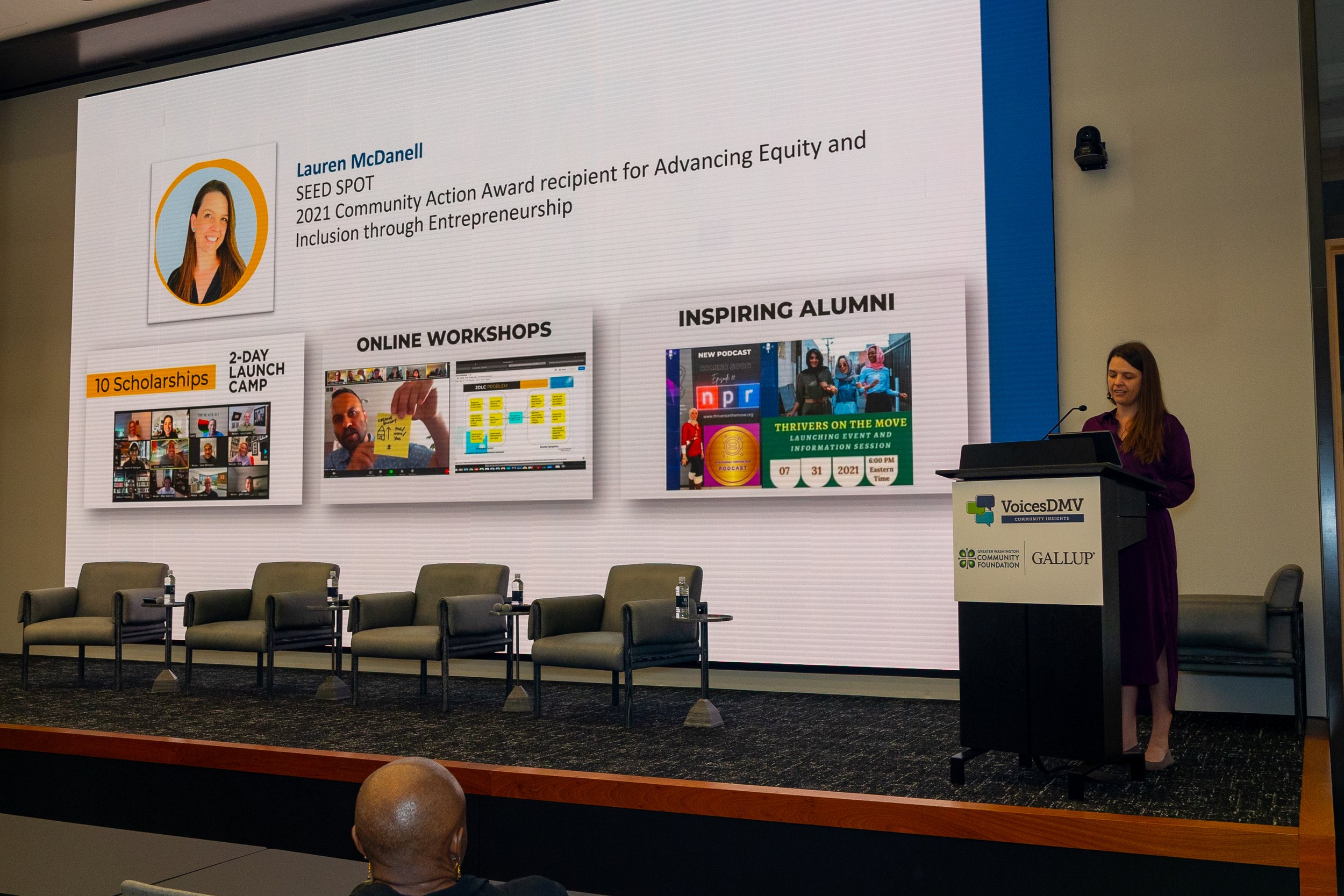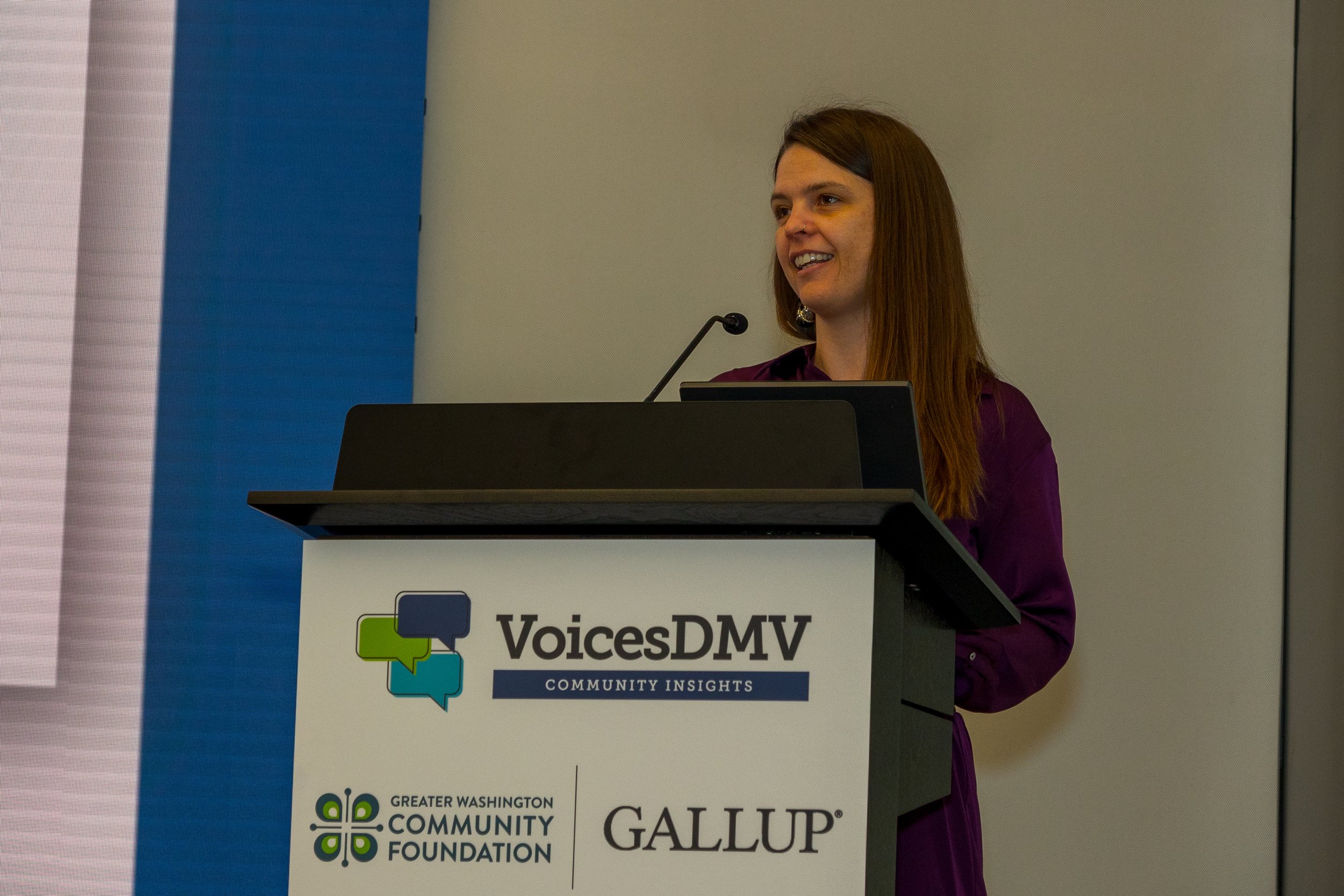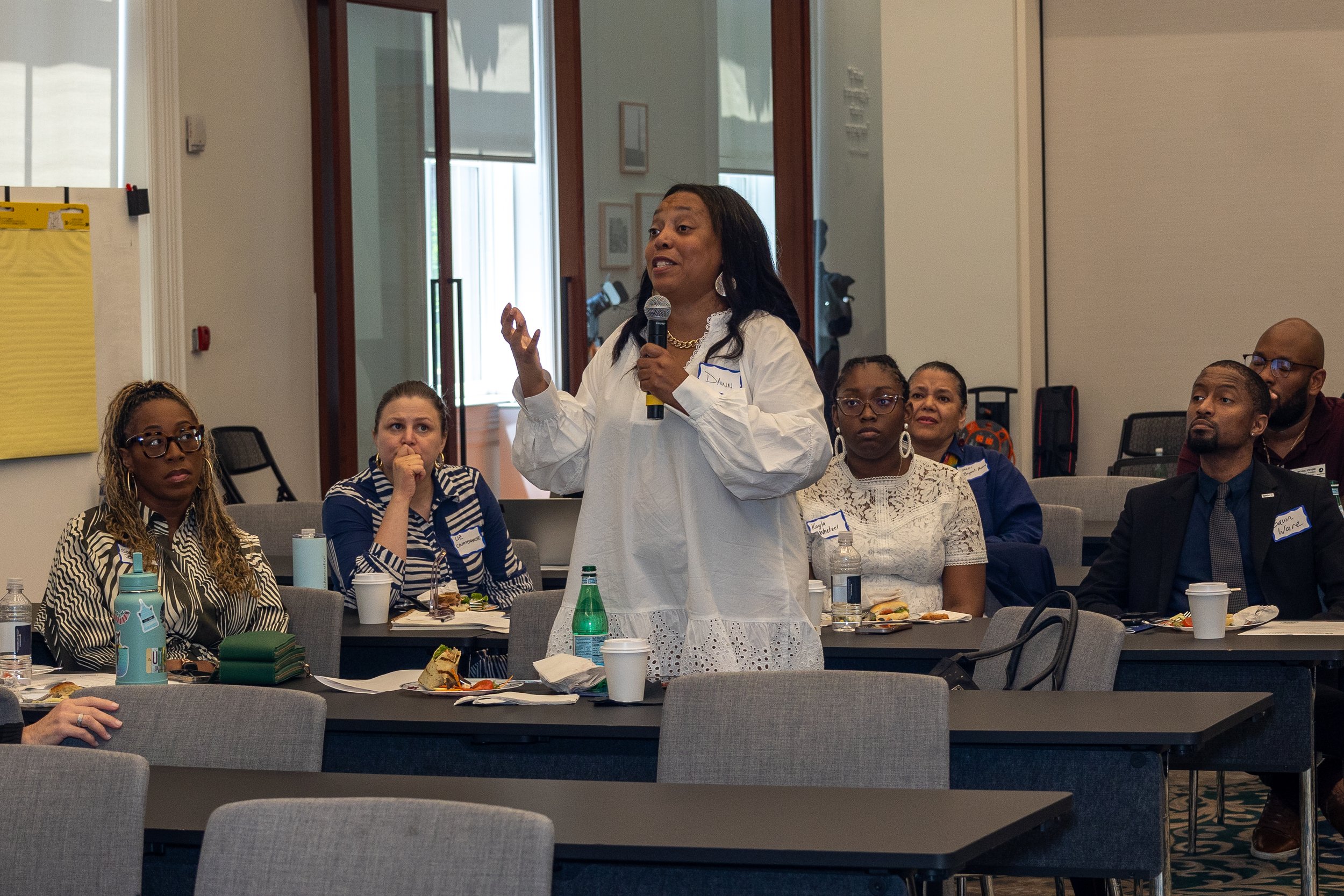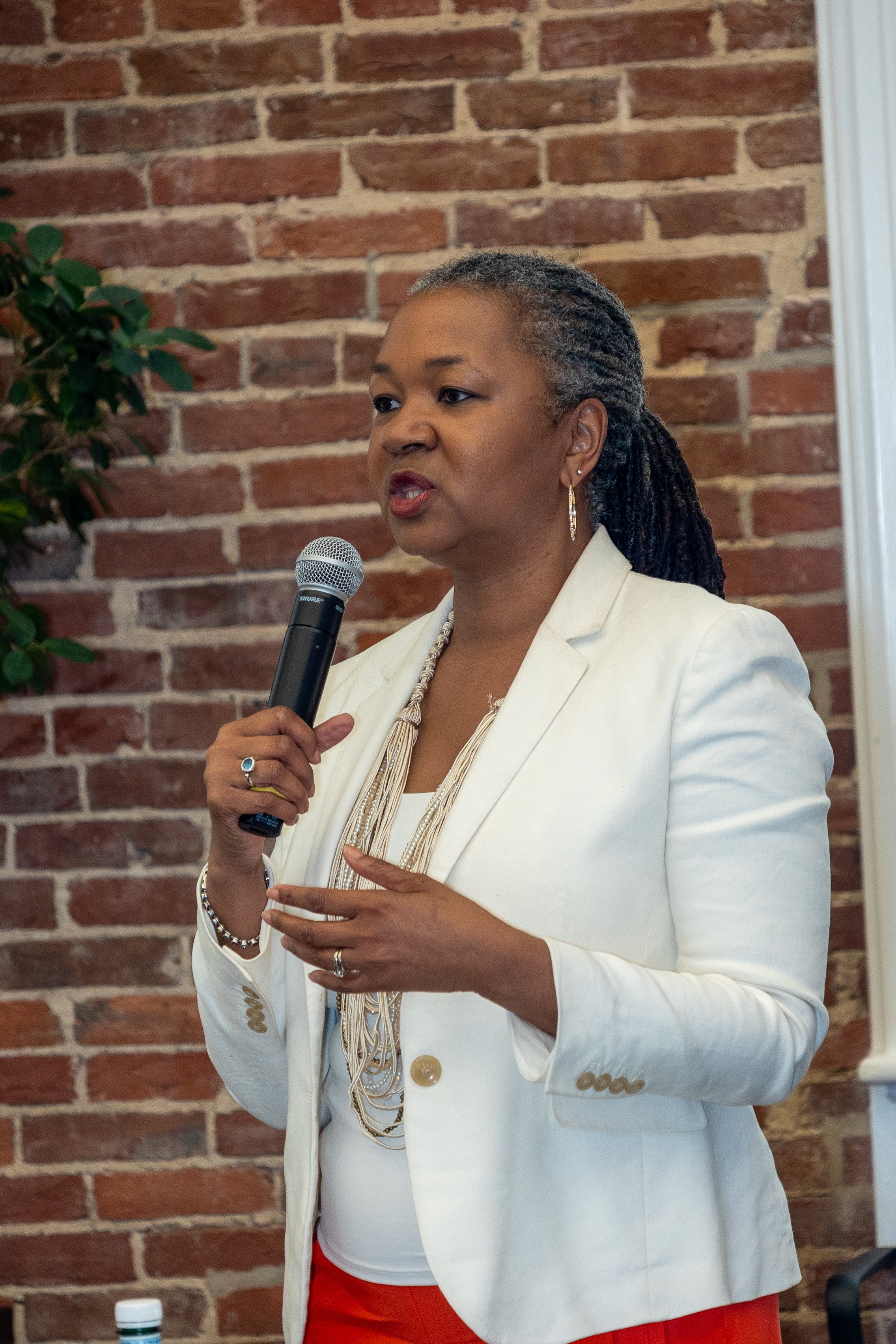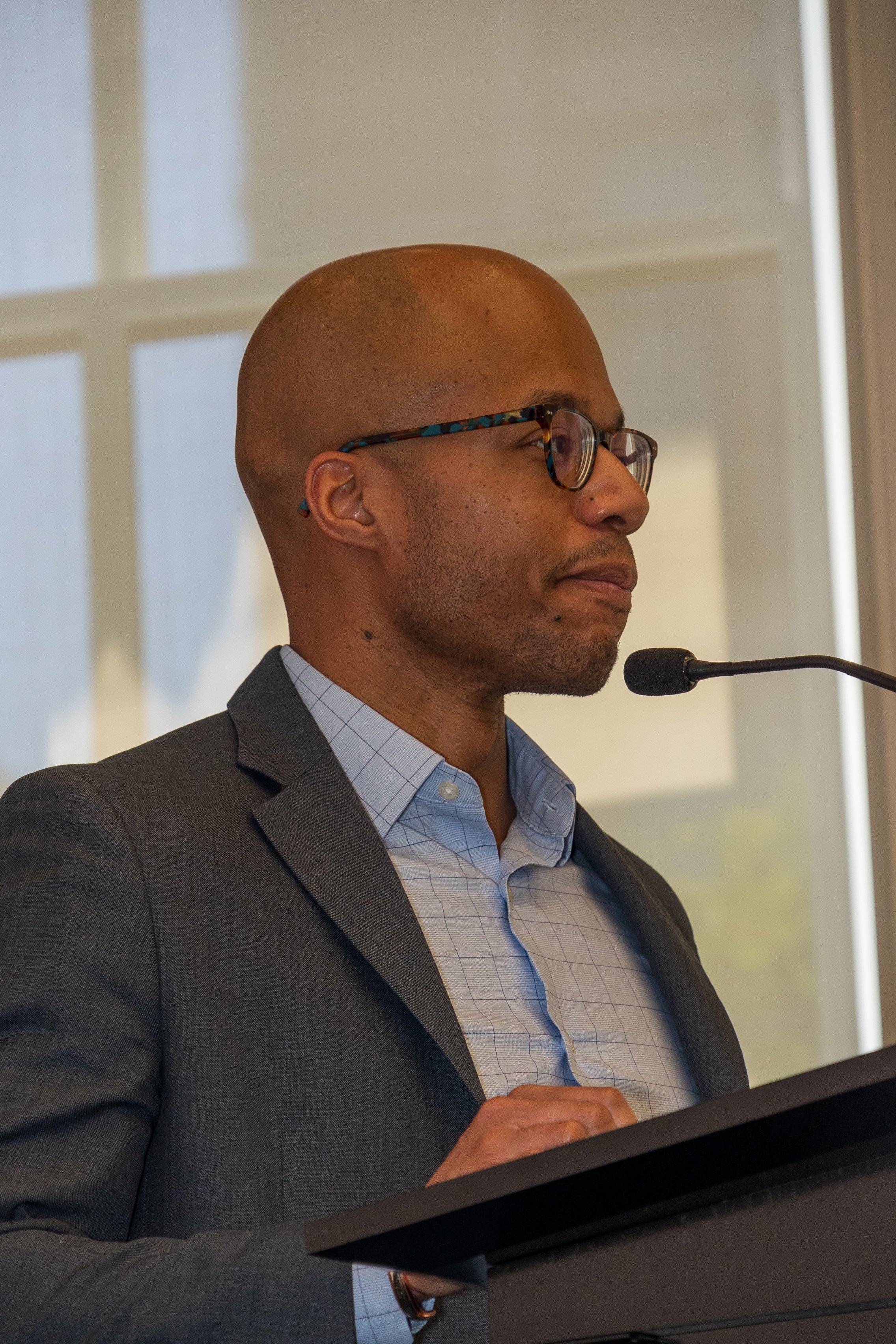On September 10, parents, teachers and friends of the graduating class of 2037 gathered at Bradbury Heights Elementary School in Capitol Heights to celebrate the launch of Brilliant Futures. The pilot – which was launched in partnership with Prince George’s County Public Schools (PGCPS) and Reid Community Development Corporation – is the first children’s saving pilot program in Prince George’s County.
“We are pleased to announce our partnership with Bradbury Heights for our Brilliant Futures Program to invest in the future of your children,” President & CEO Tonia Wellons shared with parents – some of whom were hearing about the program for the very first time.
Announced earlier this year, Brilliant Futures is a children’s savings pilot program that will provide kindergarten students at two schools with up to $1,000 in savings each year from kindergarten through 12th grade.
Members of the Class of 2037 perform a special musical number to kick off the program.
The Community Foundation has partnered with Prince George’s County Public Schools to launch the pilot program for all kindergarteners currently enrolled at Bradbury Heights Elementary School in Capitol Heights, MD in Prince George’s County. The program also launched in June for the rising kindergarteners at Jackson Road Elementary School in the White Oak neighborhood of Silver Spring, MD in Montgomery County.
The Community Foundation has committed to funding the program for two consecutive kindergarten cohorts at each school — specifically the future graduating classes of 2036 and 2037 at Jackson Road Elementary and classes of 2037 and 2038 at Bradbury Heights Elementary schools. The program is expected to enroll up to 400 students. The participant population is 90% Black, Latinx, and Hispanic with all students eligible for free and reduced meal service (FARMS).
The schools were selected in alignment with The Community Foundation's strategic focus on high opportunity priority neighborhoods across the region where residents are experiencing the deepest disparities in homeownership, income, and life expectancy, according to several data sources.
Superintendent Millard House II handing out certificates to Brilliant Futures participants at Bradbury Heights Elementary
“We’ve seen the transformative impacts of well-executed programs that provide savings for young people and adults alike,” said Millard House II, superintendent of Prince George’s County Public Schools. “We hope that by supporting students with a down payment on life, whether that goes toward funding a college tuition, starting a small business, or buying a house, this program will level the playing field, promoting racial and financial equity in the Greater Washington region.”
“Brilliant Futures isn’t just about the money,” Dr. Lynnette Walker-Crayton, Principal of Bradbury Heights Elementary School added. “It’s about nurturing our youngest learners and setting them up with the confidence and agency to build their own life.”
That confidence rang through the air, as members of the graduating class of 2037 opened the program with a special musical number -- twenty bright, smiling faces belting out the refrain:
““I’m brave, I’m strong, I’m loved…and I’m unique!” ”
The pilot program will be funded using $10 million of contributions raised by The Community Foundation’s “Together, We Prosper Campaign for Economic Justice” and through investments from generous donors. Upon completing high school, the goal is for each student to have access to at least $13,000, plus any investment earnings, that they can use to seed their future aspirations.
Brilliant Futures parent Joann Brent and her future scholars.
The Greater Washington Community Foundation will work with the schools as well as with community partners Reid Community Development Corporation in Prince George’s The Greater Washington Community Foundation will work with the schools as well as with community partners Reid Community Development Corporation in Prince George’s County and Parent Encouragement Program in Montgomery County to manage the program.
“Thank you for intentionally sewing a seed into these scholars; these future business owners – our future leaders through the Brilliant Futures program,” expressed Dr. Kenneth Harris Vice Chair of the Prince George’s County School Board. “There’s no better place to start than right here in Bradbury Heights in District 7.”
“This is something I was not expecting this year,” Joann Brent, one Brilliant Futures parent shared. “It’s simply magical – thank you for giving us this boost to fuel us through the next 12 years of our children’s educational journey.”
If you’d like to find out more about how you can support programs like Brilliant Futures, visit our website to learn more about our Together, We Prosper Campaign or contact Chris Howie, Managing Director of Development at chowie@thecommunityfoundation.org





















